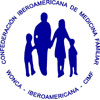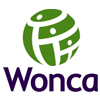Telehealth: a tool to improve care in rural communities
Resumo
Introdução: The rural population is made up of groups with specific health needs and faces the lack of infrastructure and skilled professionals able to deal with more complex health situations. The World Health Organization defines telemedicine as services related health through the technology. It is the medicine practice support by means of telecommunications.
Objetivos: This study aims to identify existing telehealth services in the state of Minas Gerais, understand its operation and evaluate its applicability and importance in sustaining the health systems that serve rural populations.
Metodologia ou descrição da experiência: This was an exploratory, descriptive and reflective study by analyzing scientific articles from the database of the Scientific Electronic Library Online - SciELO and also publications of the Ministry of Health and World Organization of Family Doctors (Wonca). To the research, we used the indexes: Primary Health Care, Rural Health, Telehealth. We analyzed the needs of rural health defined by the Working Group for Rural Medicine (WGRM) of the Brazilian Society of Family Medicine and Community and compared with the benefits of using telemedicine programs, evaluating their applicability in the care of rural communities.
Resultados: The rural health professional usually act in situations of relative "isolation" or smaller teams and limited resources. The Network Telecare Minas Gerais (NTMG) provides service through Electrocardiogram analysis, cardiologist online support in urgent cases, offline teleconsulting, beyond lectures and scientific events. Currently serves 660 cities with a population less than 10,500 inhabitants corresponding to 821 telehealth points. The service has performed, since 2006, 1.2 million of electrocardiograms and 50,000 teleconsultations. The program has reduced by around 78% the number of referrals, increasing the effectiveness of assistance.
Conclusões ou hipóteses: NTMG consolidates as important network of educational and healthcare support through the teleconsulting and telediagnosis. Contributes to improve quality in health care, reducing isolation and difficulty in access to secondary and tertiary services. It becomes necessary, therefore, its expansion as a public policy and greater adoption to rural communities.
Palavras-chave
Texto completo:
PDF (English)Apontamentos
- Não há apontamentos.
Este periódico é de responsabilidade das associações:
Apoio institucional:







